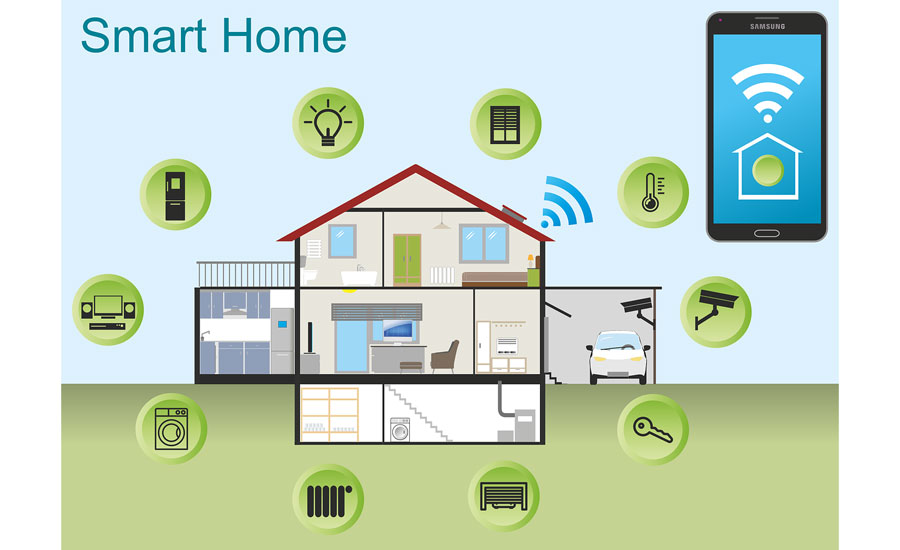The Future Of Home Home Heating - Exactly How Heatpump Modern Technology Is Developing
The Future Of Home Home Heating - Exactly How Heatpump Modern Technology Is Developing
Blog Article
Post Author-Marshall Stack
Heatpump will certainly be an essential modern technology for decarbonising heating. In a circumstance regular with governments' announced energy and climate dedications, their worldwide capacity doubles by 2030, while their share in home heating rises to one-quarter.
They function best in well-insulated homes and rely on electricity, which can be provided from a sustainable power grid. Technical breakthroughs are making them more efficient, smarter and more affordable.
Gas Cells
Heat pumps utilize a compressor, refrigerant, coils and followers to move the air and warmth in homes and devices. They can be powered by solar power or electrical energy from the grid. They have been acquiring appeal as a result of their affordable, quiet operation and the ability to create electricity during peak power demand.
Some business, like IdaTech and BG MicroGen, are dealing with fuel cells for home heating. These microgenerators can replace a gas central heating boiler and produce several of a house's electric demands with a connection to the electrical energy grid for the remainder.
Yet there are reasons to be cynical of using hydrogen for home heating, Rosenow states. It would certainly be pricey and inefficient contrasted to other innovations, and it would certainly add to carbon exhausts.
https://docs.google.com/spreadsheets/d/1MUgZ_wp6GLDHgzr-KvBmySg69i8WwMHj9IX-JEqz24M/edit?usp=drive_link and Connected Technologies
Smart home innovation enables home owners to attach and manage their gadgets remotely with making use of smart device apps. For instance, clever thermostats can discover your home heating preferences and immediately adapt to optimize energy intake. Smart lights systems can be controlled with voice commands and instantly switch off lights when you leave the room, lowering energy waste. And wise plugs can keep track of and handle your electric use, allowing you to recognize and limit energy-hungry appliances.
The tech-savvy home shown in Carina's interview is an excellent illustration of how occupants reconfigure room heating methods in the light of brand-new wise home innovations. They rely on the tools' automatic functions to accomplish everyday modifications and concern them as a practical methods of performing their home heating methods. Because of this, they see no reason to adapt their techniques even more in order to make it possible for versatility in their home power need, and interventions aiming at doing so may face resistance from these houses.
https://www.aarp.org/auto/car-maintenance-safety/info-2021/diy-maintenance.html
Considering that heating homes accounts for 13% of US discharges, a switch to cleaner choices can make a big distinction. However the technology deals with difficulties: It's expensive and needs comprehensive home restorations. And it's not always compatible with renewable energy sources, such as solar and wind.
Until lately, electric heatpump were too pricey to take on gas models in a lot of markets. Yet new technologies in style and materials are making them extra budget-friendly. And better cold environment efficiency is allowing them to operate well even in subzero temperatures.
The next step in decarbonising home heating might be using warmth networks, which attract heat from a central source, such as a neighboring river or sea inlet, and disperse it to a network of homes or structures. That would minimize carbon exhausts and allow houses to make the most of renewable resource, such as green power from a grid provided by renewables. This alternative would be less expensive than changing to hydrogen, a fossil fuel that calls for brand-new facilities and would just lower CO2 discharges by 5 percent if coupled with enhanced home insulation.
Renewable Energy
As electricity rates go down, we're starting to see the same trend in home heating that has actually driven electric cars and trucks into the mainstream-- however at an also faster speed. The strong environment situation for electrifying homes has been pressed better by new research study.
Renewables make up a considerable share of modern-day heat consumption, but have actually been given limited policy focus internationally compared to various other end-use markets-- and also much less focus than power has. Partially, house ventilation system mirrors a mix of customer inertia, divided rewards and, in numerous nations, aids for nonrenewable fuel sources.
New modern technologies could make the change less complicated. For instance, heat pumps can be made a lot more energy efficient by changing old R-22 refrigerants with brand-new ones that don't have the high GWPs of their precursors. Some specialists additionally picture district systems that draw warmth from a neighboring river or sea inlet, like a Norwegian fjord. The warm water can after that be used for cooling and heating in a neighborhood.